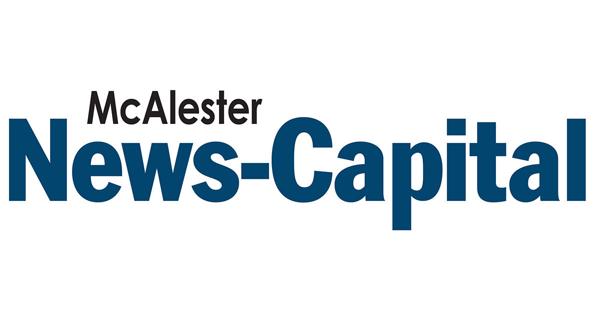Christmas has come early to the American taxpayers! One of the provisions of a recently passed tax law allows beneficiaries of certain education investments to perform a tax-free rollover to a Roth Individual Retirement Account (IRA) for their benefit. Why is this important? First, the excess education funds will be taxed to the beneficiary should the funds be used for purposes other than education. However, if the beneficiary were eligible to establish a Roth IRA, the rollover of such education funds to the Roth IRA would be tax-free in the year in which the rollover occurs and, most importantly, the growth of the Roth IRA would not be taxed to the beneficiary during their lifetime if certain criteria are met.
To qualify for this tax-free rollover of education funds, the beneficiary’s account shall have been established for at least fifteen years prior to the rollover date. Truly little guidance has been issued on the rollover process, but it appears the funding of the account at least fifteen years previous would meet the criteria.
Another requirement is that the beneficiary must qualify for a Roth IRA. Income requirements must be met such as earned income, not passive income, in an amount that allows the beneficiary to establish the Roth IRA. Further, IRA limits apply in the same manner as a contribution for a particular year. For tax year 2023, the contribution limit is $6,500 for taxpayers less than 50 years of age. The contribution limit was increased to $7,000 for the same age group in 2024.
Certain actions are required to perform a rollover of the education funds prior to April 15, 2024, that will allow the beneficiary to perform two rollovers in the same year. For example, if the beneficiary meets all the requirements to perform the rollover, an amount of $6,500 may be rolled over as a designated 2023 rollover and $7,000 as a 2024 rollover. For some beneficiaries, the benefit is that they may begin the funding of their Roth IRA with $13,500 in 2024 to capture market returns for the year with a greater amount of investment.
As with all good acts by the Internal Revenue Service, there are limits to the amount a beneficiary may rollover in their lifetime. The limit is $35,000 per beneficiary. Although the amount is not significant for purposes of funding retirement, the important fact that the funds will grow without taxation and may be used for longevity purposes is material. For illustration purposes only, let us assume the full $35,000 is rolled over to a Roth IRA by the beneficiary at age 35. Further, assume the beneficiary desires to take distributions from the Roth IRA at age 70. If the economy provided reasonable market returns, let us assume 6% annual return on average for the thirty-five-year period. The total amount of funds available for retirement funding would be $270,384. Consequently, these funds are tax-free no matter the use of the funds. Isn’t compound interest a great invention!
What happens to the remaining balance of the education funds? The beneficiary may use the funds for purposes other than education and pay their effective tax rate on the distribution. Another means would be to transfer the balance of the education funds to another family member without taxation. What a wonderful benefit for the designated beneficiary to receive education funds for private elementary and secondary school needs! This generational impact is another benefit allowed under the law.
One last benefit, currently not applicable for most beneficiaries due to the high limit of estate exemption, is that the education funds would not be required to be included in the beneficiary’s estate should the person die before utilizing the balance of the account.
There are other benefits to these funds that will allow grandparents and other relatives to contribute significant funds within one tax year to open or add to the account for beneficiaries. We will address these opportunities in future articles.
Taxes are a difficult discussion for many people. However, with proper planning, you may experience significant tax savings during the year. Seek out a Certified Public Account and/or a CERTIFIED FINANCIAL PLANNER™ professional to assist you in planning for a more rewarding future for your family. The investment in education will pay dividends for your family as you assist your children and grandchildren to be competitive in the future economy. Education was the catalyst for me to escape the trap of lower socioeconomic challenges for my family. My parents were incredibly supportive of education and required us to read the classics, take challenging courses in high school and seek greater education by attending college or trade schools. I am thankful for their leadership in this area of life. They truly raised my level of knowledge and lifestyle with their sacrifices.
One of my favorite quotes comes from my father, Robert Williams: “Work hard and seek as much education as you can. If the world were to fall apart, your education can never be taken away.” He was wise to instill this advice in his children. Make it a wonderful week!
EDITOR’S NOTE: The information in this article is for educational purposes only and is not intended to be tax advice. Past performance is no guarantee of future results in any investment. Investing involves risk including the loss of principal.
Registered Principal Securities offered through Cambridge Investment Research, Inc., a Broker/Dealer, Member FINRA/SIPC. Jimmy J. Williams is an Investment Advisor Representative of Compass Capital Management, LLC, a Registered Investment Advisor. Cambridge and Compass Capital Management, LLC are not affiliated. 321 S. 3rd, Ste. 4, McAlester, OK 74501. Cambridge does not offer legal and tax advice. Please consult your legal and tax advisor for specific estate and income tax planning strategies.







